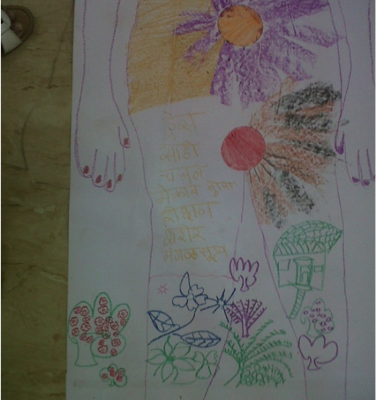Issue In Focus
It may be useful to visualize sexual rights as a large tree with deep roots and a vast canopy of…
It may be useful to visualize sexual rights as a large tree with deep roots and a vast canopy of…
It may be useful to visualise sexual rights as a large tree with deep roots and a vast canopy of leaves. Or as a giant umbrella. Or a big tent. Whatever tickles your imagination and allows you to see it as a conceptual and practical tool to make claims for any aspect that relates to how we express sexuality.
I have great respect for Michel Foucault and his views on sexuality in our present era. While speaking on the…
The rabbit and the monster is a story about a baby rabbit all alone in a jungle trying to escape…
If students of such young ages can have the agency to work around hard-wired issues of sexuality and privacy, bearing in mind consent, choice and failure as part of life, we see no reason for this sense of agency to not expand one’s sense of belonging and easily create change.
Since all women do not share a common history, agency cannot and need not be located for all in an emancipatory discourse and in the recourse to resistance and subversion. For some, feminist agency and the realisation of one’s potential as gendered actors in the world can come from submitting to a discourse that others deem repressive.
I am a perverse nomad. My journey encompasses cruising parks in Kolkata and New York City, friendships with didis of…
To think of sexuality as performative disrupts the need for stable categories and identities, instead suggesting that we all reinforce and disrupt normative formations as we attempt to inhabit the world in messy ways.
Is seeking wellbeing selfish and individualistic? Does it imply placing one’s own interests above those of others? In the context of sexuality, does it mean prioritising one’s pursuit and attainment of pleasure above all else?
Is seeking wellbeing selfish and individualistic? Does it imply placing one’s own interests above those of others? In the context of sexuality, does it mean prioritising one’s pursuit and attainment of pleasure above all else?
Spirituality and sexuality (for most people, if they are not asexual or voluntarily celibate, either of which is their right to be) are both about union. And they are both about deeply personal and intimate aspects of oneself.
Societal norms that are contested, especially around body and sexuality, are often passed as the ‘natural order’ of things. The objective study of ‘nature’ that science claims to do induces society to seek scientific explanations to verify naturalness. It has been shown in many cases that the questions that scientists ask, and the methods they use, are coloured by norms of society. Yet, the ‘scientific answers’ thus got help determine what is natural. In the process, the normative gets naturalised.
Women in our societies largely do not have any acquaintance with the word ‘consent’, but they are very familiar with…
A few days ago, we were doing a self-reflective exercise at work on what gives us power, how we demonstrate power, and what (or who) has power over us. Surprisingly, but not much, I found money featuring across the board for me: be it through financial independence or financial constraints. Power, as exercised by me or as exercised over me, has been intricately tied with my sexuality – ranging from job options to travel decisions to reproductive choices – and money seemed to lord over it all. It wasn’t the only lord, but it was quite a powerful lord.














